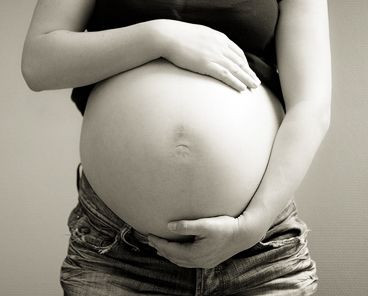Teen Pregnancy Cuts Breast Cancer Risk By 50%

An early or teen pregnancy is tied to cutting risks of breast cancer by 50 percent, a new study finds.
Researchers followed the activities of certain genes in the breast tissue of mice who just gave birth compared to their virgin peers who had not.
They found that the Wnt/Notch signaling ratio, which are pathways that control a cell's fate during development, was significantly reduced in mice that gave birth. This means the pathways are altered in women 20 years or younger who give birth thereby reducing their risk of getting breast cancer by half.
The genes involved in the immune system functions and differentiation were highly active after birth, while the genes that coded growth factors declined in activity.
Specifically, the Wnt4 and Notch genes are responsible for a cell's fate, and when researchers closely observed the activity of the Notch gene they uncovered that the proteins it controlled were up-regulated, meaning they were more active, while the opposing Notch-inhibiting proteins were down-regulated.
"The down-regulation of Wnt is the opposite of that seen in many cancers, and this tightened control of Wnt/Notch after pregnancy may be preventing the runaway growth present in cancer," said lead author Mohamed Bentires-Alj of the Friedrich Miescher Institute for Biomedical Research, in a press release.
Previously, the reasons behind why early pregnancy was warding off breast cancer were mysterious and unresolved, but this latest study using a microarray analysis approach explains why a young pregnant woman's immune system gets a boost and a cancerous fate was prevented.
"This finding was specific for basal stem/progenitor cells and was associated with downregulation of potentially carcinogenic pathways," the authors wrote.
Wnt4 protein is also known as a feminizing protein. Without this protein, it increases a woman's chance of having a baby boy.
According to the Mayo Clinic, women can reduce risk of breast cancer by other means, which include limiting alcohol consumption and smoking, being physically active and maintaining a healthy weight, cutting hormone therapy and exposure to radiation. Breast feeding for longer periods has also been shown to cut the chances.
The study appears in BioMed Central's open access journal Breast Cancer Research.
See also: Poor, Minority Women Most Likely To Die Young From Breast Cancer.
Published by Medicaldaily.com



























